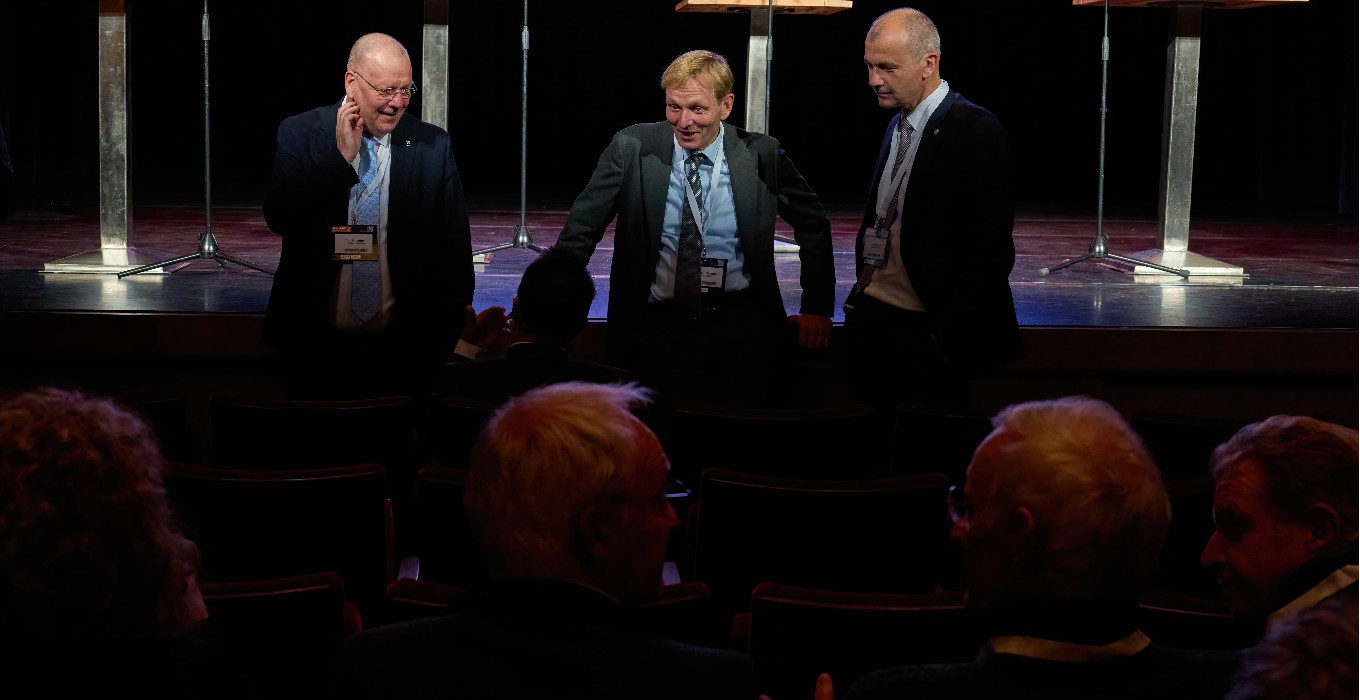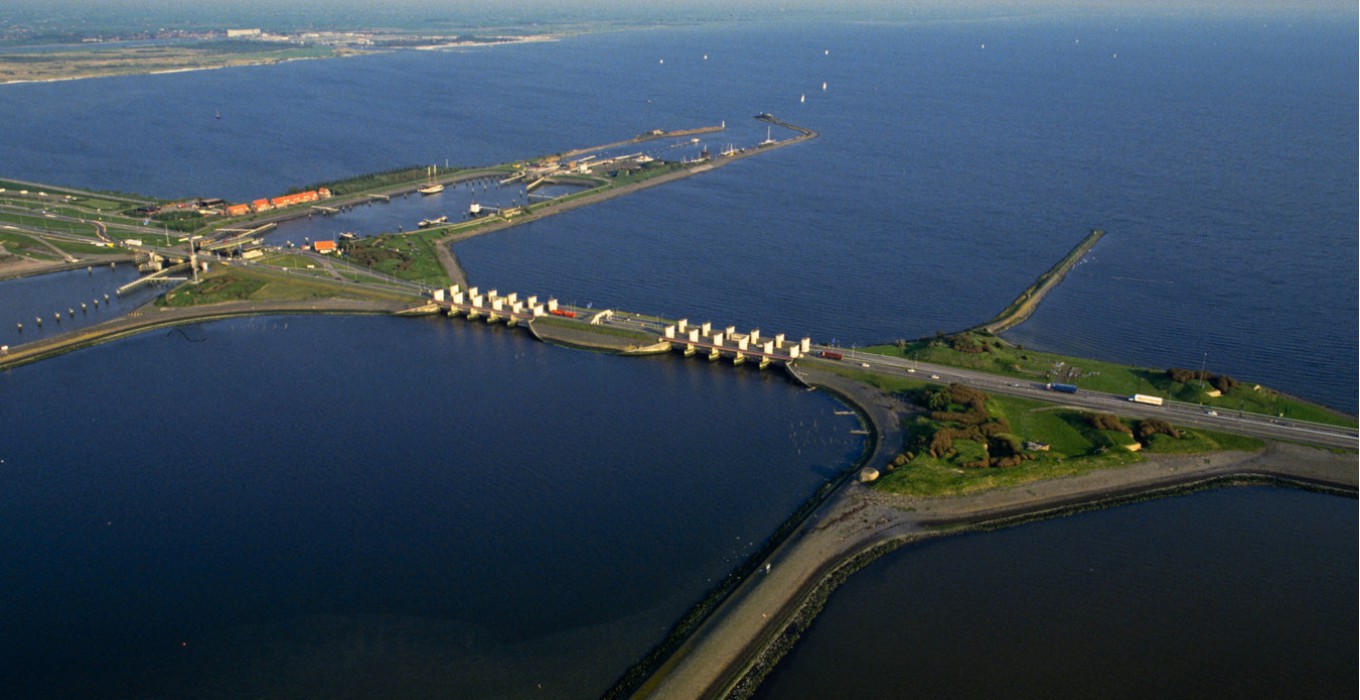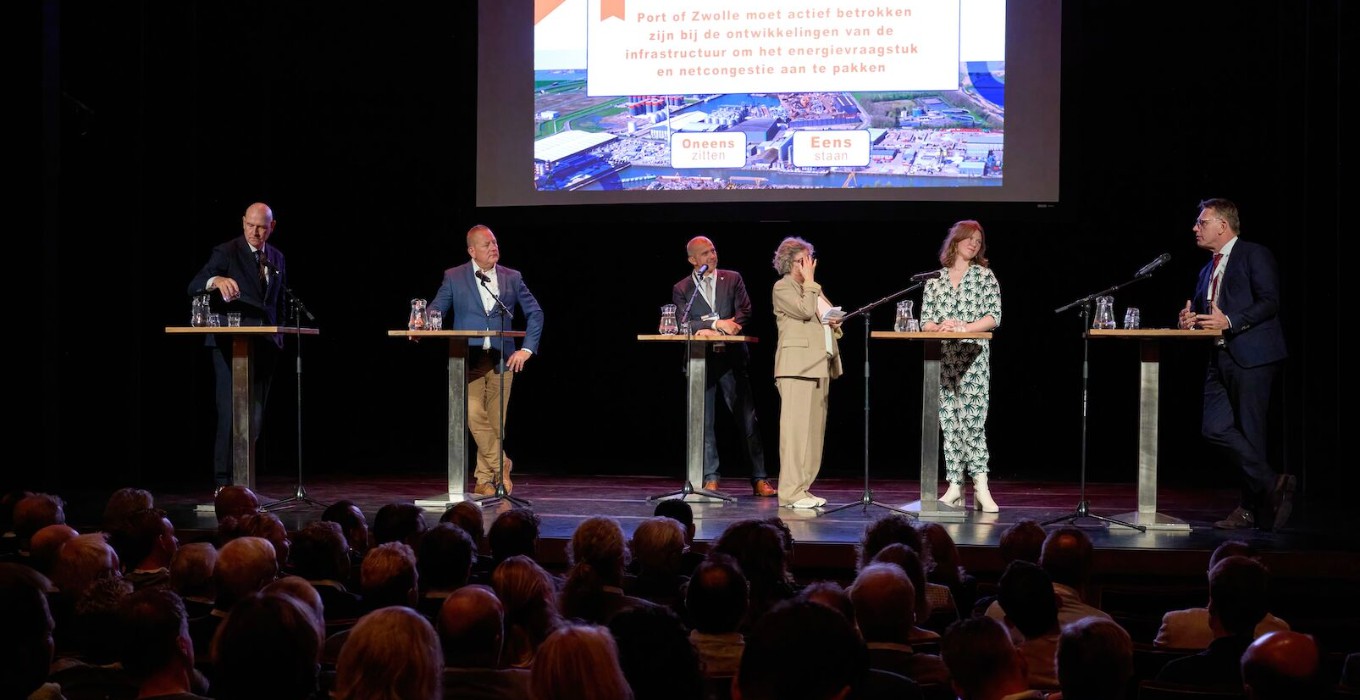
Northern Region fears cancellation of Afsluitdijk lock widening
The significant uncertainty surrounding the widening of the lock at Kornwerderzand, the lack of space, and the need for better infrastructure were central topics during the Port Debate in Zwolle. On the first issue, many regional stakeholders increasingly fear that delays could turn into outright cancellation.
Mayor Sander de Rouwe of Kampen summarized the key priorities of the Port of Zwolle at the start of the debate in a concise A, B, and C outline: “A for improvements to the A50 highway, B for the wider lock at Kornwerderzand, and C for the circular economy. These three are crucial for the growth ambitions and future of the Port of Zwolle,” said De Rouwe. This A, B, C framework resonated throughout the evening, with the wider lock at Kornwerderzand emerging as a recurring topic.
Salinization concerns
“This is crucial for the region’s future growth and the port area,” emphasized Jeroen van den Ende, CEO of the Port of Zwolle. The hope is for a final decision to be made soon, but uncertainty remains, as highlighted in the debate held at the Stadsgehoorzaal in Kampen. Revised calculations from The Hague show that the lock’s costs have risen to around €461 million, with additional expenses linked to the salinization of the IJsselmeer.
The vital importance of the Kornwerderzand lock to the northern region is evident in the fact that the province and private sector have already contributed over €69 million for the Lorentz Locks. During the debate, Van den Ende, alongside local and provincial politicians, urged the minister to approve the plans. Whether this appeal will succeed remains unclear.
Misaligned priorities
The importance of robust infrastructure, accessibility, and multimodal transport was also discussed in the first debate round. “There are significant opportunities to serve as a spillover area for the Randstad by diverting transport from roads and easing pressure on deep-sea ports,” said Zwolle alderman Paul Guldemond. Sieger Dijkstra, chairman of VNO-NCW Northern Netherlands, agreed: “We’re playing small-ball in the Netherlands, focusing infrastructure investments where it’s already crowded, in the Randstad, while we should be better utilizing the outskirts.”
Role of Ports in energy transition
Another pressing issue was grid congestion, the uncertainty surrounding new connections, and the long waiting times for businesses. “Everyone recognizes this issue and sees that regulations can be a barrier. The question is what role the port authority can play in this,” said Kampen alderman Bas Wonink. According to Eline van Krimpen, Project Leader of Circular Economy at Deltalinqs, the answer is clear: “The port authority acts as the landlord and can take charge. In Rotterdam, we have an energy task force where companies can report grid congestion issues. We’ve resolved some of these by enabling energy exchanges between neighboring businesses. The port authority has insight into companies and can take the lead.”
Need for better coordination and flexible rules
Entrepreneur Bert Weever, who has been working on a smart energy hub for years, believes a lack of clear roles is holding progress back. “Everyone sees the need for local and regional solutions, but I still feel like a pioneer. To solve this, we need better understanding of what everyone is doing and clearer role distribution.”
The discussion panel also highlighted the need for more flexible laws and regulations. “The current energy legislation isn’t geared for the future,” noted Van Krimpen. “To change this, we need to approach The Hague and the ACM and push for ways to maximize the loopholes in the current framework.”
Shortage of technical workers
Another pressing concern raised by Cas Konig was the growing shortage of technical workers in port areas. “Energy suppliers in this region are already booking contractors for the next ten years. I’m warning businesses now: the lack of technical personnel will become a major issue. We desperately need those skilled workers.”
Leveraging European networks
Erwin Hoogland, deputy for the province of Overijssel, emphasized the importance of engaging with European networks. He pointed out that Dutch Europarliamentarian Jeannette Baljeu is a strong advocate for Dutch ports and urged stakeholders to maintain robust ties in Brussels. Hoogland also highlighted the strategic value of the IJssel as the largest tributary of the Rhine, underscoring the potential for realizing growth ambitions for the Port of Zwolle from a European perspective.
Date:
November 6, 2024
Autor:
Ivonne Vermeulen, NT (translated by AI)
Photographer:


Share with: